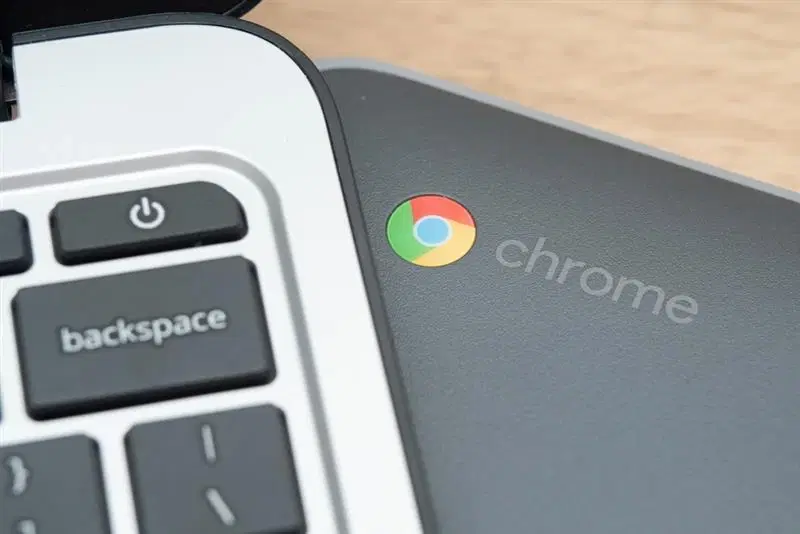
Consumer Electronics
•03 min read
Choosing between a Chromebook and a Windows laptop can feel like navigating a maze of technical jargon and endless options. We’re here to simplify the decision, providing you with a clear understanding of the key differences and helping you decide which option suits your needs—whether for work, study, or leisure.
A Chromebook is a laptop that runs on Chrome OS. Its design is lightweight, focusing on cloud-centred functionality and affordability. The operating system is simple yet secure, making it an attractive choice for users who primarily work online. With features such as long battery life and ease of use, Chromebooks offer a promising option for anyone who values efficiency and simplicity.
Windows laptops operate on the familiar Windows 10 or 11 platform, known for its versatility. They showcase a broader range of software compatibility, allowing for customised user experiences. Whether you need specialised applications for productivity or high-performance hardware for entertainment, Windows laptops offer the flexibility to cater to various demands.
The fundamental differences lie in hardware build quality, the operating system (Chrome OS vs Windows), and the software availability. While Chromebooks focus on delivering a swift, cloud-based experience, Windows laptops provide a more robust array of features including extensive compatibility with specialised applications and gaming support.
Many students appreciate the affordability and simplicity of Chromebooks. The seamless integration with Google Workspace makes it easier to manage online classes and assignments. However, for those who require specialised software or broader functionality, Windows laptops may provide an edge. With a Windows laptop, you also have the advantage of enhanced compatibility, especially for students studying fields that require resource-intensive applications.
In the workplace, Chromebooks can be ideal for remote and cloud-based tasks. The secure environment provided by Chrome OS is perfect for day-to-day office use. For professionals who rely on applications that demand high performance or specific software like advanced Microsoft Office tools or design applications, a Windows laptop is often the more reliable choice.
If gaming is high on your priority list, the choice is clearer. Chromebooks, with their lack of dedicated GPU support, are not suited for intensive gaming experiences. On the other hand, Windows laptops offer a range of high-performance options and are designed with gaming capabilities in mind, providing a smoother and more engaging gaming experience.
Chromebooks are loved for their affordable pricing, lightweight design, impressive battery life, and built-in security features. These aspects make them a very good option for everyday tasks and for users whose computing needs are predominantly online.
Despite the many advantages, Chromebooks do have their limitations. Their offline functionality is limited, and they may not support certain software applications essential for advanced tasks, such as creative design or high-end productivity suites. Additionally, multitasking can sometimes feel restricted compared to more robust systems.
With Windows laptops, you benefit from versatile software compatibility and a wide range of high-performance hardware options. They bring excellent capabilities for graphic design, gaming, and other resource-demanding tasks. However, the trade-offs include a higher cost, potential vulnerability to malware despite robust security measures, and the inconvenience of frequent system updates.
Insight Corner: Is Chrome OS the Future of Computing?
Did you know? Chrome OS is designed for simplicity and security, making it a great option for users who primarily work online. However, its limitations with offline software mean it’s not a one-size-fits-all solution.
Chromebooks have limited offline capabilities, reduced compatibility with certain software, and are less suitable for gaming or high-performance tasks.
It depends on your needs. Chromebooks work well for basic tasks and cloud-based work, while Windows laptops excel in software compatibility and performance.
Technically, it is possible, but not recommended because Chromebooks are optimised for Chrome OS and the hardware may not support Windows efficiently.
Yes, you can access Microsoft Office online or use the Android versions of Office apps available through the Google Play Store.
Chrome OS offers seamless integration with Google Workspace and web-based applications that enhance productivity. Conversely, Windows 10/11 delivers broad software support, making it the top choice for professional tools like Excel, design software, and video editing applications.
Chromebooks are designed with built-in security features, automatic updates, and sandboxing to minimise threats. While Windows laptops also offer advanced security options, they require more proactive measures to guard against malware and phishing attempts.
Regular software updates and extended battery life make Chromebooks a reliable option over time. Windows laptops, however, offer the possibility of hardware upgrades, though overall performance may decline over several years.
Both Chromebooks and Windows laptops offer unique advantages that cater to different users and scenarios. Chromebooks shine in affordability, portability, and security, making them an ideal option for anyone who values simplicity and cost-effectiveness. In contrast, Windows laptops excel in software compatibility, customisation, and high-performance capabilities, which are essential for professional-grade tasks and immersive gaming.
As you evaluate the differences between these options, consider your daily needs and computing habits. Whether you are a student, a professional, or a gaming enthusiast, there is a device that aligns perfectly with your lifestyle. With offerings that include NeuCoins rewards and special benefits on Tata Neu, you can enjoy extra savings while making smart, informed choices for your tech investments.